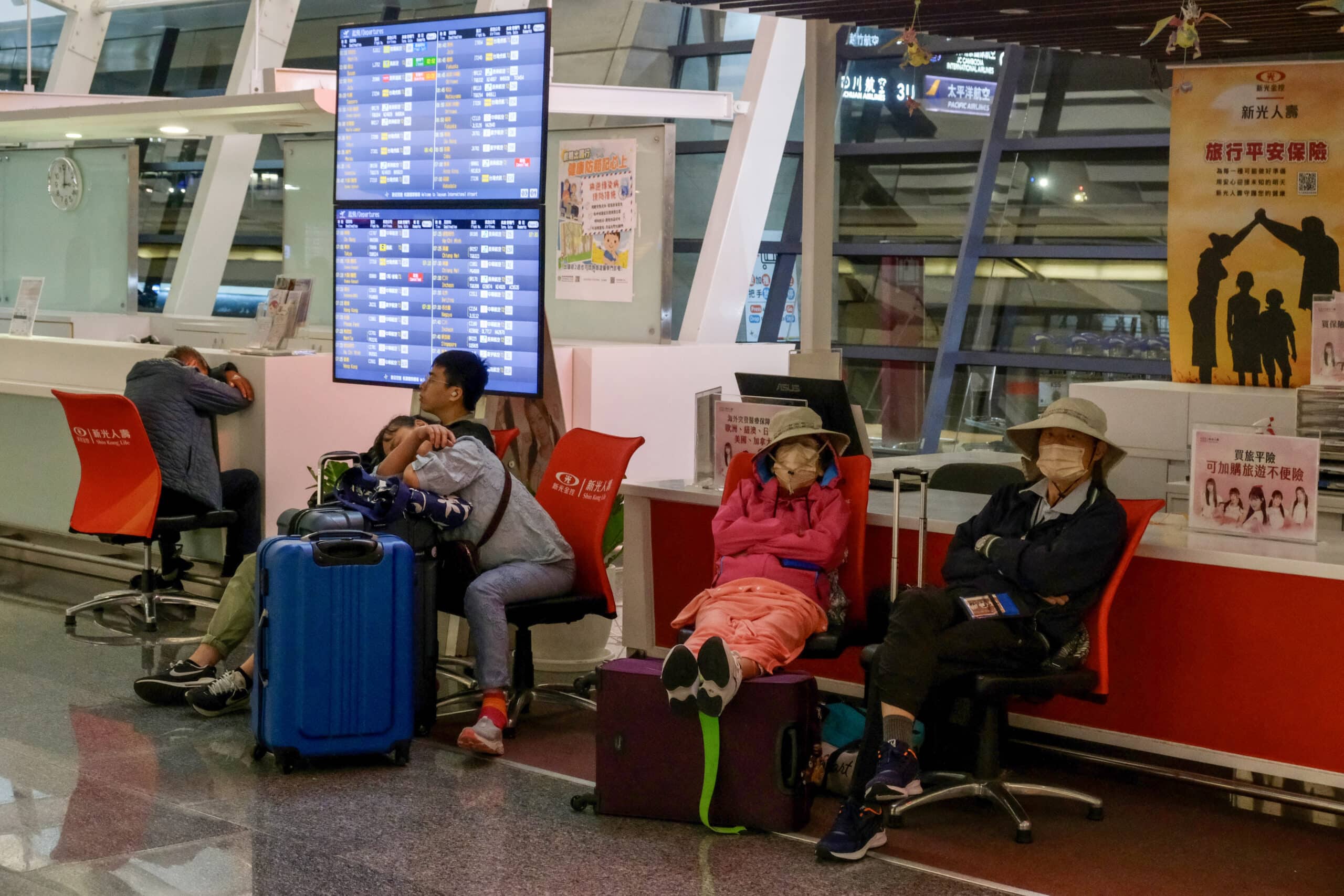
Passengers rest at the Taoyuan international airport on October 2, 2024. Agence France-Presse
KAOHSIUNG — Taiwan shut down schools and closed its financial markets on Wednesday as Typhoon Krathon pounded its south and east with torrential rains and winds ahead of its expected landfall.
Krathon, packing sustained wind speeds of 173 kilometers (107 miles) per hour and gusts of up to 209 kph — was 140 kilometers southwest of southern Kaohsiung as of 10:00 am (0200 GMT), the Central Weather Administration (CWA) said.
The typhoon, downgraded overnight to medium from strong under Taiwan’s measurement system, is now expected to arrive near Kaohsiung or Tainan on Thursday morning , the agency said, a day later than previously forecast.
READ: Thousands evacuated as Super Typhoon Krathon approaches Taiwan
“This typhoon is moving very slowly. The time of its landfall continues to be delayed. The latest forecast is that the typhoon’s centre will make landfall at about 10 am tomorrow,” said CWA chief Cheng Chia-ping.
“After making landfall, it will weaken rapidly. It will weaken into a tropical depression on (Thursday) morning, and basically dissipate over the land of Taiwan,” he said at a government briefing.
Offices and schools across the island were closed and the interior ministry said more than 10,000 people had been evacuated from vulnerable areas as a precaution.
READ: Julian exits PAR, but may re-enter on Wednesday – Pagasa
President Lai Ching-te had warned Tuesday that the typhoon was likely to cause “catastrophic damage” and urged the public to be “particularly vigilant” due to its relatively rare route as the typhoon was forecast to exit from the island’s east coast.
All domestic flights and ferry services were cancelled Wednesday, and around 250 international flights were suspended.
Nearly 40,000 troops were on standby for relief efforts, the defence ministry said.
Across Taiwan, 46 typhoon-related injuries had been reported as of Wednesday and one person in western Yunlin county was reported missing after falling into the sea, authorities said.
Typhoons are common around the region at this time of year.
However, a recent study showed that they are increasingly forming closer to coastlines, intensifying more rapidly and lasting longer over land due to climate change.
In Kaohsiung, authorities distributed sandbags and cleared storm drains to avoid a repeat of the widespread flooding seen during typhoon Gaemi in July.
Gaemi was the strongest typhoon to make landfall in Taiwan in eight years, leaving at least 10 people dead and hundreds wounded.
Taiwan is accustomed to frequent tropical storms from July to October, but experts say climate change has increased their intensity, leading to heavy rains, flash floods and strong gusts.
Residents in Kaohsiung also taped up windows, filled sandbags and erected barriers around their homes to keep out floodwaters.
Coast guard officers patrolling the scenic tourist spot of Sizihwan Bay told people to stay away as powerful waves pounded the coast.
The storm was approaching Taiwan after slamming into a remote group of Philippine islands, where it cut power and communications and damaged “many” houses, according to a local mayor.
The Philippines’ National Disaster Risk Reduction and Management Council said Wednesday that eight people were injured and one was missing due to Krathon.
It added that 5,431 people were displaced in the northern part of the Philippines, mostly from the regions of Ilocos and Cagayan Valley.